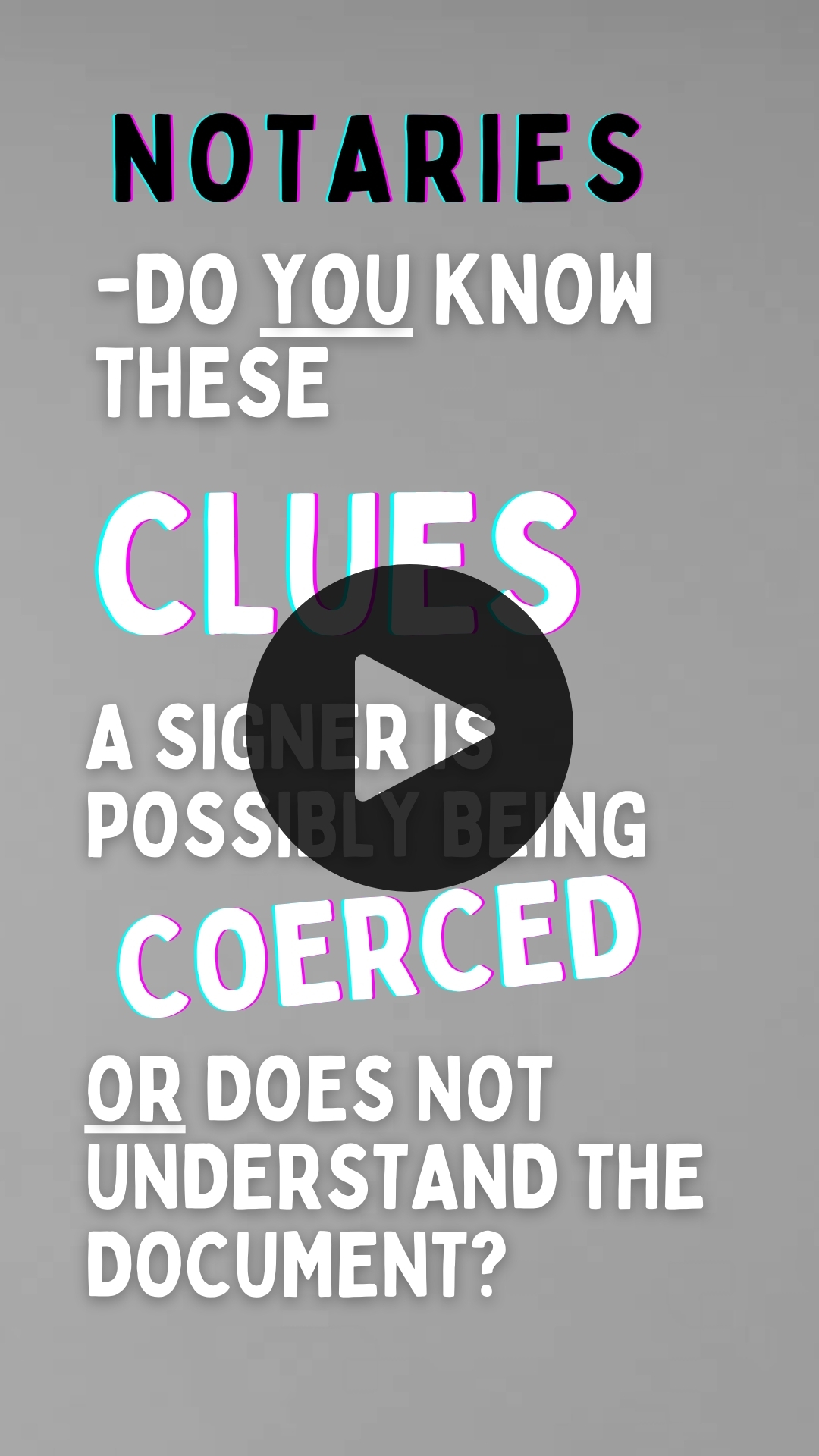Notary Public Underwriters Blog
How to Assess Signer Awareness or Coercion
- Details
- Published: January 2, 2024

Many notaries say they get a gut feeling when something may be amiss during a signing. One of the most important responsibilities of a Notary Public is to assess the signer's awareness and ensure they are not being coerced. There are several common clues that may suggest the signer is being coerced or does not understand the document:
- Avoiding eye contact
- Nervous behavior
- Someone other than the signer answering questions
- Excessive questions from the signer about the document
- Lack of knowledge about the document's content
- Signs of medication or substance influence
- Confusion or cognitive impairment
To properly assess a signer's awareness, engage in conversation. First, greet the signer and explain your role. Pose open-ended questions to encourage the signer to share their understanding of the document. This allows you to gauge their comprehension and provides an opportunity to observe their demeanor, body language, and overall behavior.
If third parties are present during the notarization, exercise extra caution. While it's not uncommon for family members, friends, or legal representatives to be present, be attentive to any signs of coercion from these individuals. If necessary, interact with the signer privately to ensure their comfort and understanding.
If you suspect the signer is unaware or being coerced, politely refuse the notarization without making accusations or questioning their honesty. Instead, express discomfort and suggest they seek legal advice or clarification from the document issuer. Remember, as a Notary, you are not authorized to provide legal advice.
After refusal, maintain a detailed notary journal documenting why the notarization is being refused, including your observations and interactions with the signer. This documentation serves as a valuable record in the event of future disputes or legal challenges.
Related Article(s)
Declining a Notarization: A Guide to Handling a Delicate Situation With Professionalism
What Do I Do With My Record Book (Journal) Entry When a Notarization Is Cancelled (Not Completed)?
May a Notary Correct Their Error or Omission on a Notarial Certificate?
Notarizing a Signature: Performing the Verbal Ceremony
What to Do When the Notary Certificate Is Missing?
How to Handle Out-Of-State Documents
Tips to Protect Your Notary Stamp and Journal

